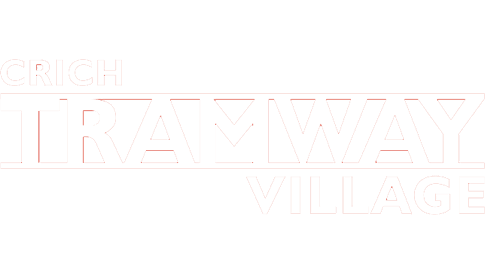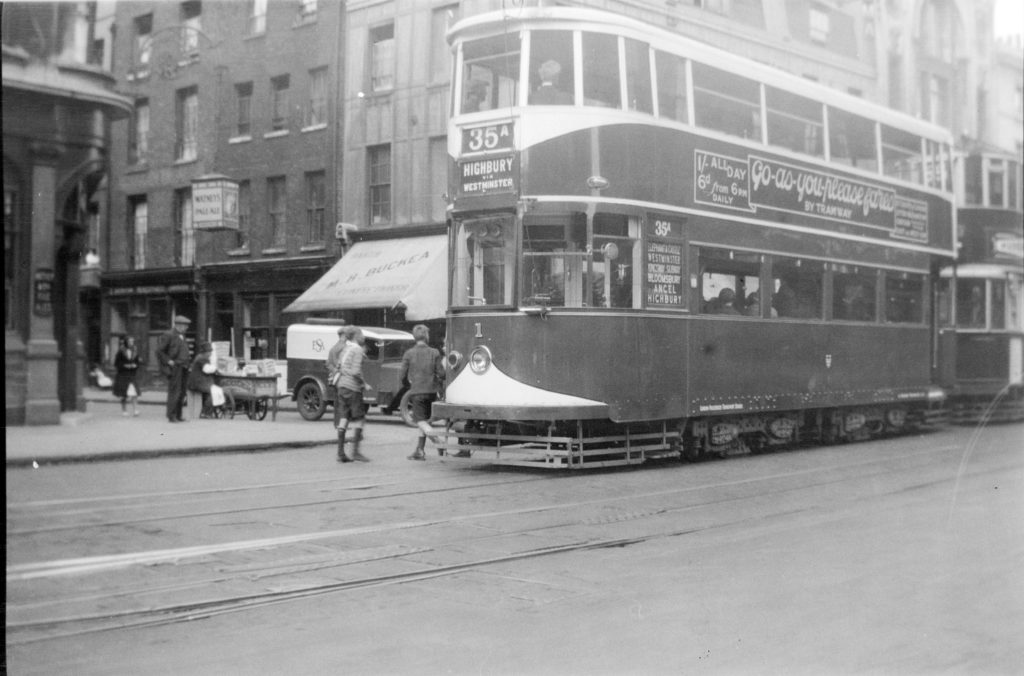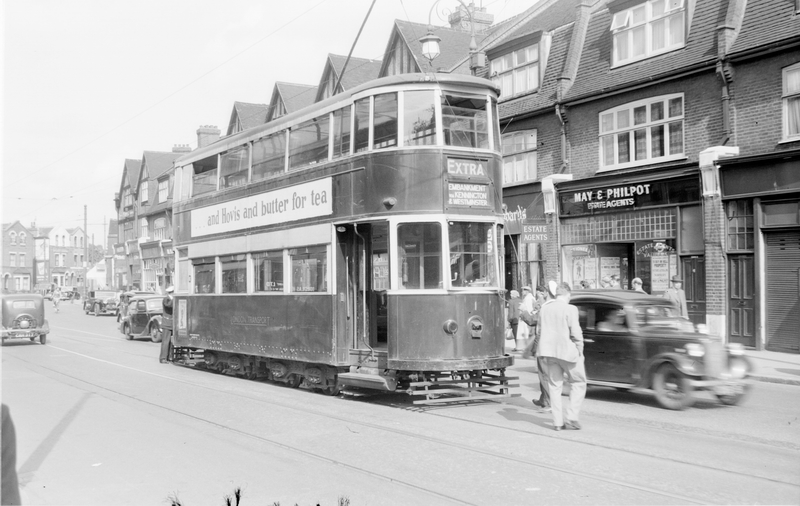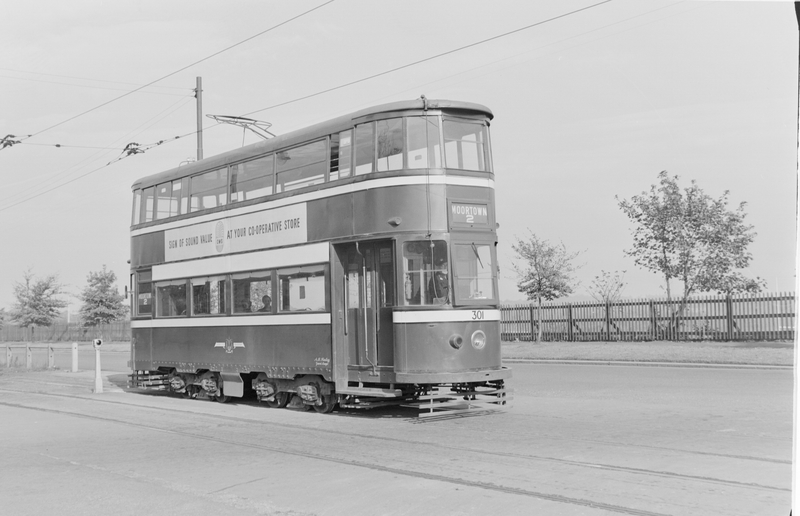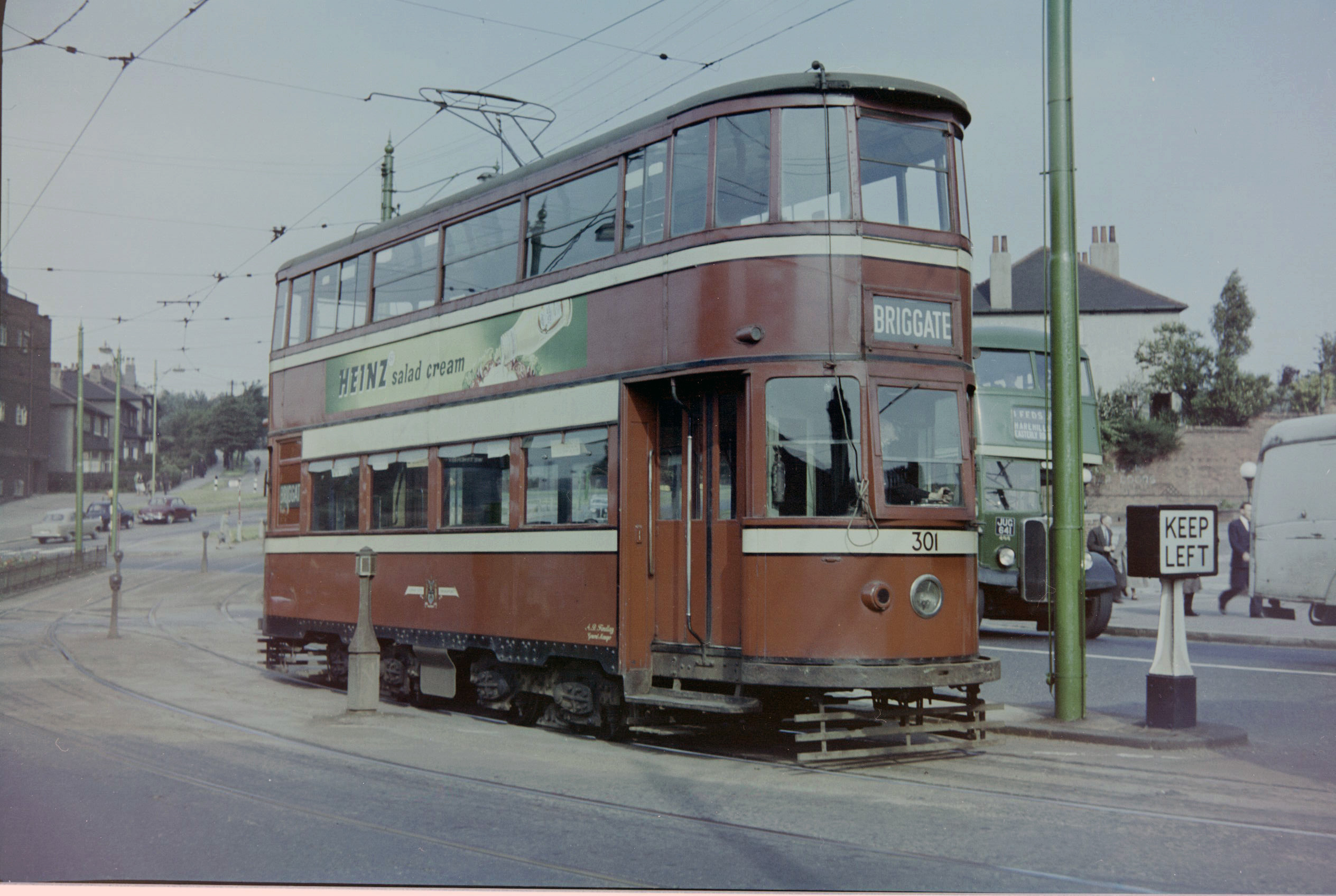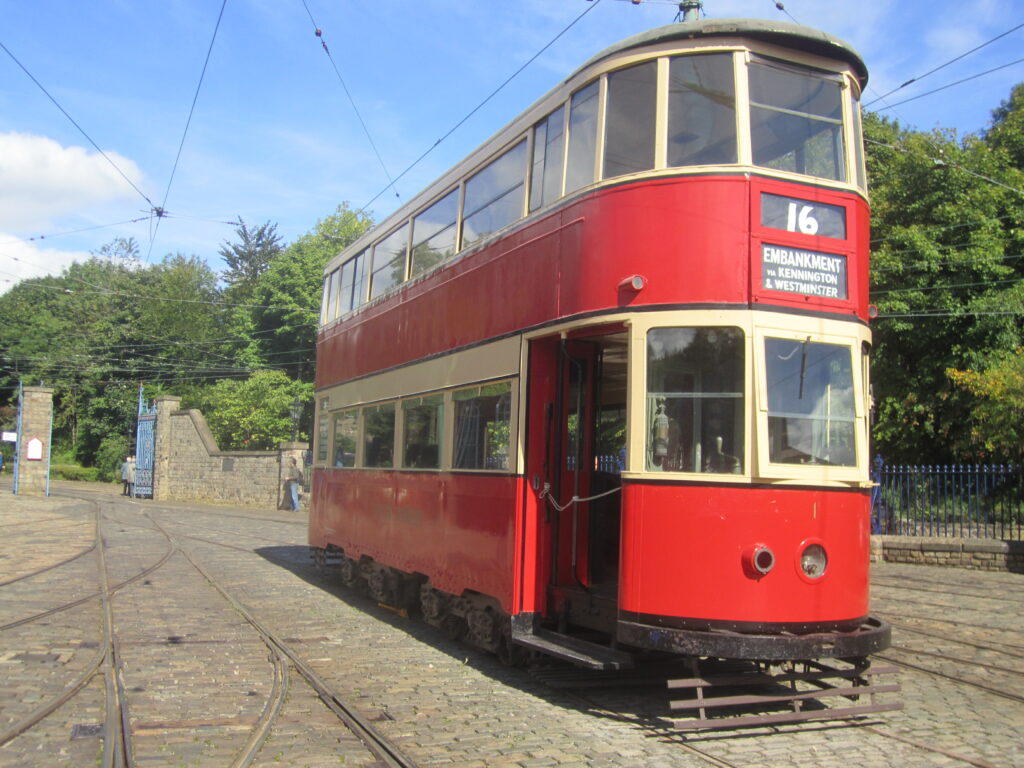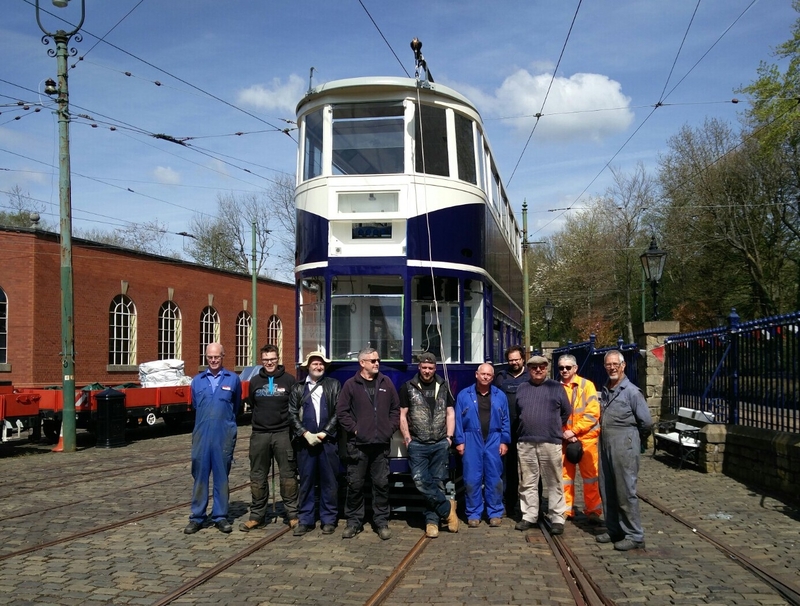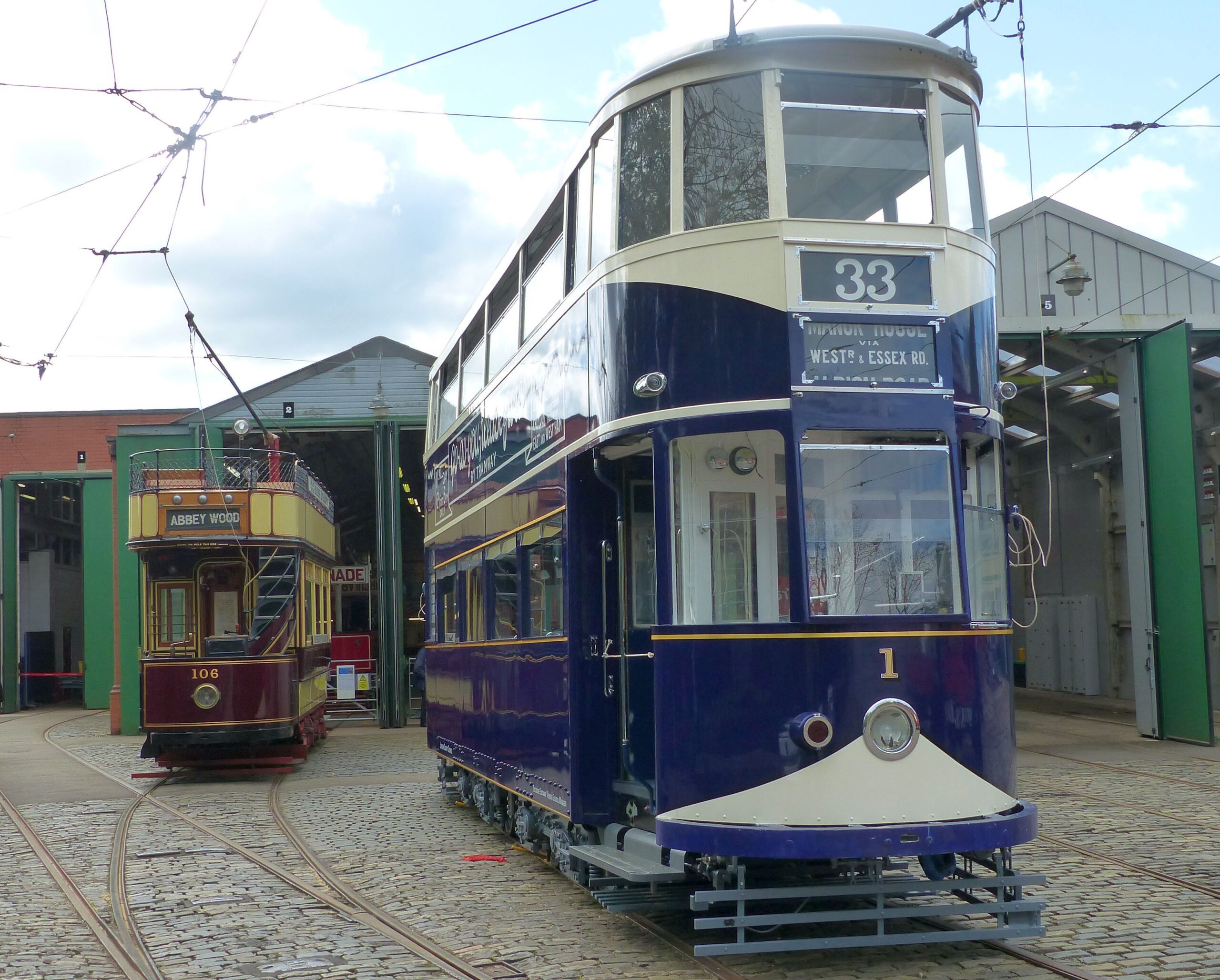London County Council No. 1
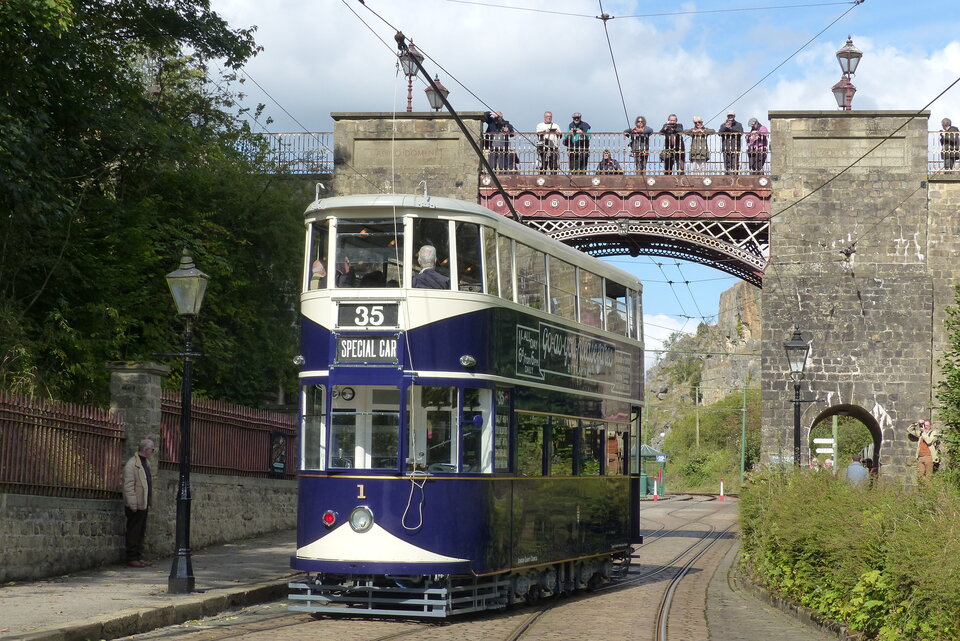
LCC1 on its inaugural run following its ceremonial launch on 13th September 2024. Photo: Jim Dignan
By the time London County Council no. 1 came into service in 1932, Britain’s tramways were at a crossroads. Faced with growing traffic congestion, increased competition from motor buses and ageing infrastructure, many first generation tramways had already closed and been replaced by either trolleybuses or motor buses. Not all tramways were prepared to give up without a fight, however, and other London operators had responded to the challenge by introducing more modern and efficient tramcars. Not to be outdone, the London County Council decided to not only upgrade its existing fleet but also invest in a new experimental tramcar of much more advanced design.
LCC1 (as it was then), boasted a number of innovations including all-metal body and four-motor/equal-wheel bogies, an all-on-one-level lower deck and air-operated brakes and folding platform doors. In an attempt to encourage off-peak tram-riding while retaining additional capacity for rush-hour services, the tram combined superior upholstery, improved heating, recessed lighting and brighter interiors with additional space for standing passengers.
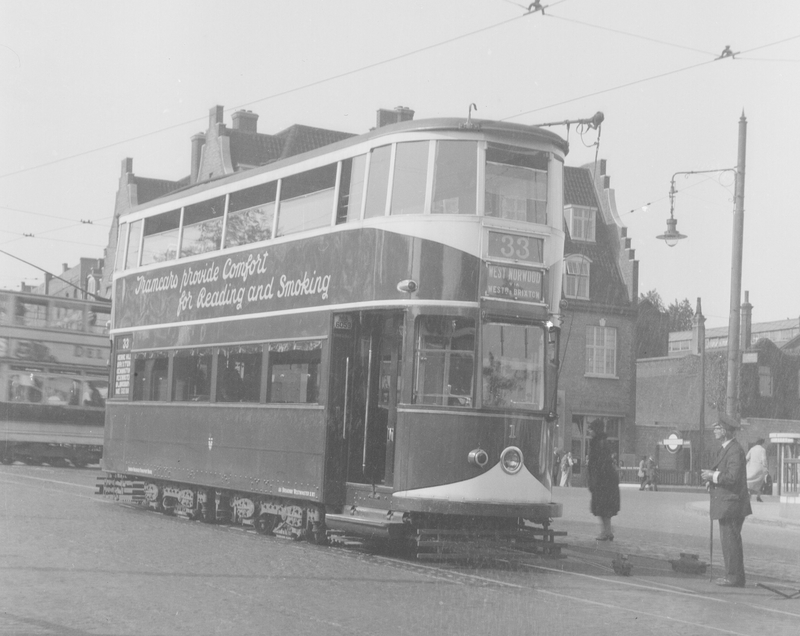
London Transport 1 as “Bluebird”, Manor House change pit. A W Bates, date unknown
Despite its weight – at 21 tons, the tramcar is thought to be the heaviest in Britain – it managed a creditable acceleration rate of 3.5 feet per second and a maximum speed of 30 mph. The tram car was given the number 1 and originally sported a distinctive blue and ivory livery with stream-lined effect, which gave rise to its nickname of ‘Bluebird’.
Specification
- Type of tram
- Fully enclosed electric double deck bogie tram
- Livery
- Red and cream (originally royal blue and white)
- Seating capacity
- 66 (38 upper saloon, 28 lower saloon)
- Date built
- 1932
- Date entered service
- 10th June 1932
- Manufacturer of body
- London County Council Tramways
- Manufacturer of truck
- EMB Radial Arm type 6A equal wheel bogies
- Gauge
- 4’ 8½”
- Motor
- MV 109Z 4 x 35 hp
- Controller
- MV OK37B with air box tops
- Current collector
- Twin Trolleys (Not fitted)
- Modification
Plough carrier removed and replacement of trolley poles with bow collector in 1951 and changes to air brake system (different motorman’s valve) plus removal of number boxes. Some cutting away of skirting (to give greater clearances on curves) while in Leeds and some mechanical components are missing.
- Withdrawn from service
Placed in store in 1939 until it was recalled to service in 1942. Withdrawn from London service on 7th April 1951. Final withdrawal from passenger service in Leeds on 29th September 1957.
- Subsequent history
Sold to Leeds in 1951, where it was repainted in Leeds (dark red & cream) livery and renumbered as 301. It entered service in Leeds on 1st December 1951.
Donated to the British Transport Museum at Clapham in September 1957. Transferred to Crich on 4th December 1972.- Restoration history
Repainted in London Transport colours after moving to Crich in 1973. In September 2012, the London County Council Tramways Trust launched a a fund-raising appeal to meet the cost of restoring the tram to its original operational condition as LCC no. 1 ‘Bluebird’. The tramcar was moved to the workshop to begin the lengthy restoration process on 14th June 2014.
The project is now at an advanced stage as the tramcar is now being reassembled though much work remains to be done before it is completed.- Current status
- Now forms part of the operational fleet, but not currently commissioned for service pending an investigation into possible issues with its motors.
- Date started operating at Crich
- 13th September 2024. So 2024 was its first operating season.
- Total mileage covered at Crich
- 70
- Current location
- Depots
- Future plans
The restoration programme has finally resulted in the return of this iconic tramcar to operational service.
- 1932 – 1939Fully operational on original tramway
- 1939 – 1941In storage
- 1941 – 1951Fully operational on original tramway
- 1951 – 1957Fully operational on a different tramway
- 1957 – 1973On display at the British Transport Museum
- 1973 – 2014On display at Crich
- 2014 –2024Undergoing restoration in the workshop at Crich
- 2014 –Operational at Crich
